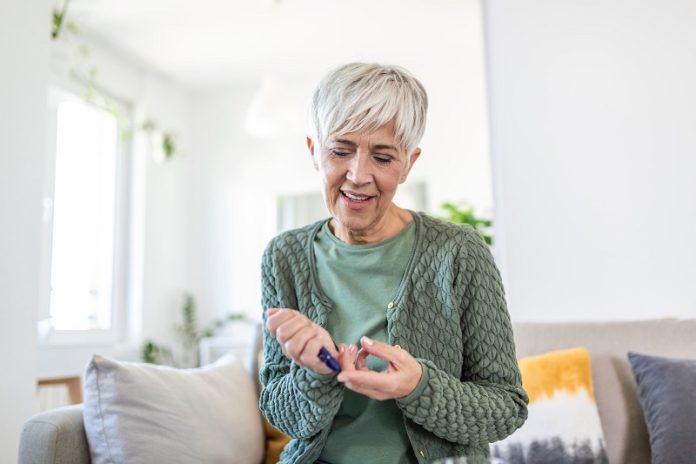
Type 2 diabetes is a common disease that affects millions of people around the world. It is a type of metabolic disorder that affects the way your body processes sugar.
People with Type 2 diabetes have high blood sugar levels, which can lead to serious health problems if not managed properly.
To diagnose Type 2 diabetes, doctors often use invasive tests that require blood samples.
However, researchers at the Hefei Institutes of Physical Science in China have found a new way to diagnose Type 2 diabetes that is non-invasive and doesn’t require blood samples.
The researchers used a device called a proton transfer reaction-mass spectrometry (PTR-MS) to detect volatile organic compounds in the urine of Type 2 diabetes patients.
One of the compounds they found was urinary acetone, which is produced when the body breaks down fat.
In people with Type 2 diabetes, the body doesn’t use or store glucose properly, so it has to break down fat instead.
The researchers studied 180 patients with Type 2 diabetes and 180 healthy volunteers.
They found that they could use the levels of urinary acetone in a person’s urine to diagnose Type 2 diabetes with an accuracy of 81.3%. This is comparable to the accuracy of the invasive tests that doctors currently use.
The researchers hope that this new method of diagnosis will make it easier and more convenient for people to get screened for Type 2 diabetes.
Since the test doesn’t require blood samples, it is less invasive and more comfortable for patients.
It is also faster and more convenient than traditional diagnostic tests, which can take hours or even days to get results.
The researchers believe that their findings could have important implications for the diagnosis and treatment of Type 2 diabetes.
By using non-invasive methods like urinary acetone testing, doctors may be able to identify the disease earlier and provide more effective treatment.
This could help reduce the risk of serious complications like heart disease, stroke, and kidney damage.
In conclusion, this study shows that it is possible to diagnose Type 2 diabetes using a non-invasive test that doesn’t require blood samples.
By detecting urinary acetone levels, doctors can accurately diagnose Type 2 diabetes with an accuracy that is comparable to invasive tests.
This new method of diagnosis could make it easier and more convenient for people to get screened for Type 2 diabetes, which could help reduce the risk of serious health complications.
If you care about diabetes, please read studies about how to prevent heart attack in people with diabetes, and green tea could help reduce death risk in diabetes.
For more information about health, please see recent studies that blueberries strongly benefit people with metabolic syndrome, and results showing oranges may hold the key to reducing obesity and diabetes.
The study was conducted by Wei Xu et al and published in Talanta.
Copyright © 2023 Knowridge Science Report. All rights reserved.



